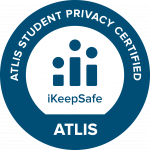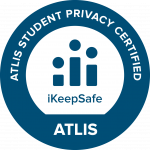The glow of pride that comes with your child moving to an advanced class can quickly turn to apprehension when you realize the challenges they are up against.
From interacting with older students to navigating a new school, there are many new situations that your child will have to deal with. Even the most prepared kid might have a hard time making the adjustment. This guide will help prepare you and your child for what’s to come.
10 Ways to Help Your Child Succeed In Advanced Classes
In an article for The Conversation, psychologist Ann Lupkowski Shoplik, research scientist Jonathan Wai, and Susan Assouline, Ph.D. highlight some interesting data about students skipping grades.
Only about one percent of students actually skip grades during their K-12 years, though two out of every seven are ready for a higher-grade curriculum. Grade-skippers tend to have positive long-term outcomes in terms of academic and career achievement, in addition to social and psychological benefits. However, the child must be “mature enough to be able to interact with older peers.”
Understanding the material is one thing, but navigating the social strata of older students and advanced classes is quite another. Whether your child is moving up a whole grade or simply taking one advanced class, you can take steps to make the transition easier.
Establish Communication Channels With The School
Before your child starts in a higher grade class, set up a meeting with your child’s teacher.
Celi Trépanier wrote a blog post at Crushing Tall Poppies as if addressing her son’s teacher. She explained his behavior and what teaching him will be like. While you don’t necessarily need to write a letter, having a discussion with your child’s teacher can help identify areas that you may be concerned about so problems can be quickly identified and handled before they get out of control.
Tackle Sources of Stress Before Starting
If you know there are sources of anxiety with taking advanced classes or starting at a new school, it helps to tackle them early, according to Sage Day Schools. This might mean visiting the school or sitting in on a class once before your child enrolls.
Many educators are happy to make the adjustment period easier, and these small steps can ease the discomfort of a school or class transition.
Identify Insecurity Flare-Ups Caused By Change
Education journalist Philissa Cramer at Chalkbeat cites research that shows schools with students of wide age ranges actually have less bullying than schools with just a few grades.
This is because when students graduate from elementary to middle school, for instance, they lose their “top dog” status. The loss of status can generate insecurity in some students, leading them to pick on their classmates in order to stay on top.
Another potential issue to be aware of is that your child may no longer be top of the class in their new situation. This can be an overwhelming discovery for a gifted student, who is used to being the best, and may lead to behavioral issues if not recognized and addressed quickly.
Make Sure Your Feelings Don’t Cloud Your Judgement
Parents empathize with their kids as they enter their tween and teen years. However, too much empathy can cloud your judgement and turn you into a helicopter parent.
“As parents, it’s painful to see children reeling,” Phyllis L. Fagell, K-8 counselor and therapist, writes. “Adults bring their own middle school memories to the table and may struggle to stay calm and neutral. It’s important to avoid over-identifying with the child’s struggle.”
Your emotions and actions can make the situation worse even if you’re just trying to protect your child.
Don’t Let The Advanced Classes Overtake Their Social Lives
Parenting writer and podcaster Samantha Kemp-Jackson says that some kids need space in their schedules to be able socialize. Between school, homework, and extra-curricular activities, some children have a hard time getting out and having fun.
Make sure your child has time to be a kid and play with friends in their free time.
Check In to Make Sure Your Child Has Strong Friendships
Keeping an eye on your child’s school friends is important. Children can start dreading school if they don’t have a strong social group or feel accepted, leading to poor performance.
“The key question to ask here is whether your [child] makes friends at school,” psychologist Samantha Rodman, the Psych Mom, writes. “Even if you think you know that she does, ask her teacher to be sure. Ask who your [child] plays with…and whether she seems to fit in.”
Let Your Child Hang Out With Older Peers
Your child might actually benefit from spending time with older students. Most Montessori preschools let older and younger students interact to let younger students learn from older ones.
“The mixed-age classroom strives to model the natural world,” the team at Miniapple Montessori writes. “Your child can learn from those with whom he or she interacts. When all learners are the same age, experiences vary only a little.”
While you need to keep a close eye on these friendships, you shouldn’t worry about your child becoming friends with their older peers and classmates. They may even help your child mature as they grow comfortable being around older students.
Maintain a Realistic View of Your Child’s Maturity Levels
Children in middle school tend to mature physically rather than mentally, author and former teacher Amanda Morin writes at Understood.org. Their minds are playing catch-up.
You might see your child, who is growing up and enrolled in advanced classes, as a small adult, but they still have the mentality of a child.
“A major pitfall we can wander into is a false sense of maturity,” the team at Woodstock Students writes. “Often without realizing, [the children themselves, and the adults around them] assume a perspective that being one, or even five, steps ahead of their peers in one area automatically makes them far ahead in every area.”
If you can realistically ascertain your child’s maturity level and understand their strengths and weaknesses, you can guide them toward the best decisions academically and socially.
Help Your Child Become More Independent
You can’t force maturity, but you can take steps for your child to grow with additional responsibility and independence.
Jackie Gillard at Today’s Parent identified a few steps parents can take to make kids more independent and responsible. These range from identifying chores around the house for them to accomplish alone to setting aside your own perfectionism as your child tries new activities.
Look Out for Signs of Anxiety and Stress
While stress is a natural part of any middle or high school experience, there are unhealthy levels of anxiety that can prevent children from functioning to the best of their abilities.
The team at Anxious Toddlers to Teens has a list of 30 signs your child could be suffering from social anxiety. The signs might be small and difficult to pick up on, such as having difficulty eating in front of other people or talking on the phone, but point to big picture issues that manifest themselves in the classroom.
Images: jovannig/©123RF Stock Photo, highwaystarz/©123RF Stock Photo, amyelizabethquinn, tjevans








